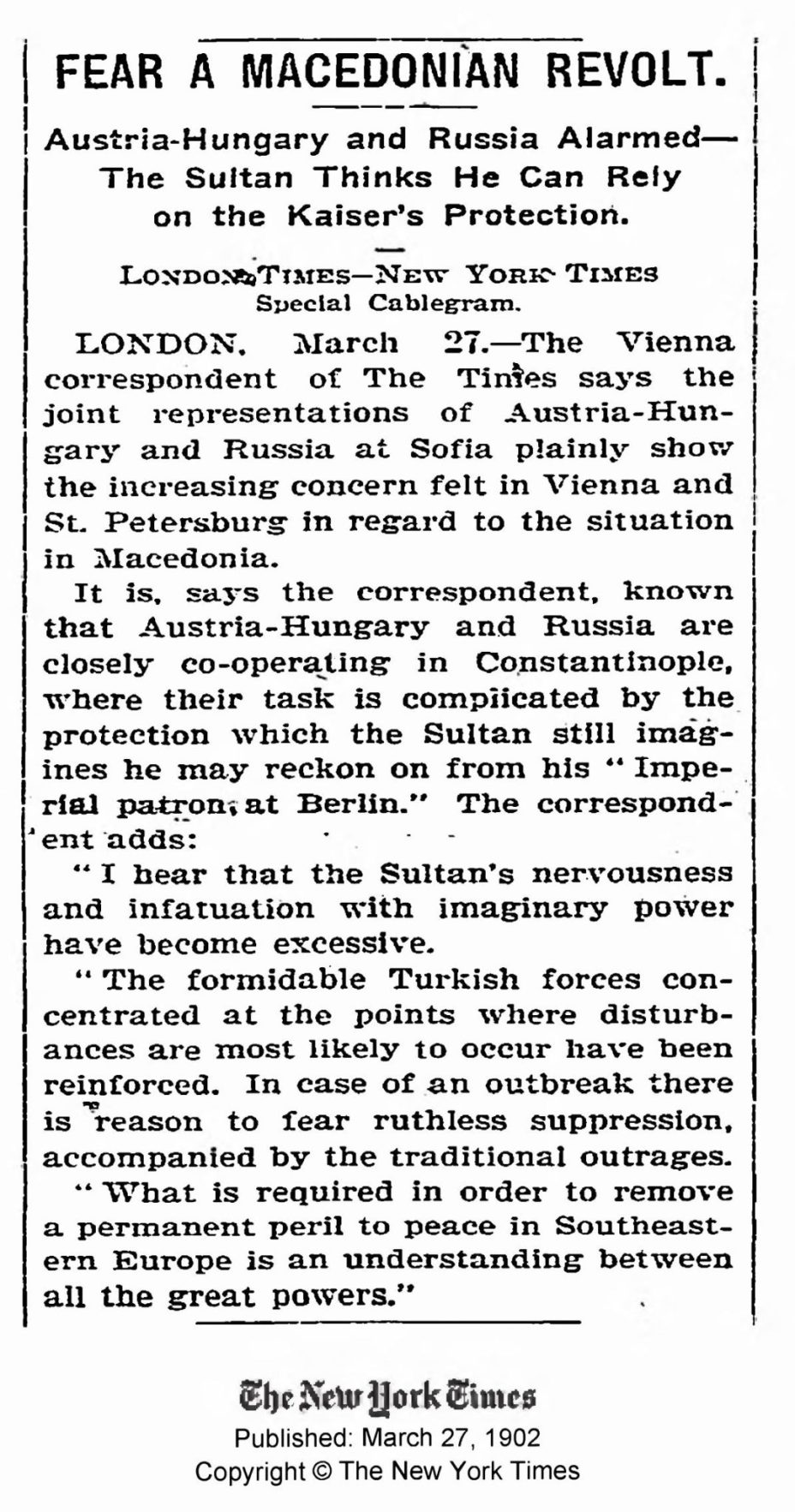„СТРАВ ОД МАКЕДОНСКИ РЕВОЛТ.“
Во Софија дипломатски претставници на Австро-Унгарија и Русија ја пренесле загриженоста на Виена и Петроград во врска со состојбите во Македонија. Австро-Унгарија и Русија блиску соработувале, но работата ја усложнувала Султановата надеж на “Империјална старателска заштита” од Берлин. Од таму, Султанот бил охрабрен да ги засили турските воени сили, кои веќе биле распоредени на местата, каде што се очекувало избивање на бунтови. Со цел ако дојде до нив, да постои страв од безмилосно задушување, придружено со традиционалните малтретирања.
Затоа, за успех во отстранувањето на постојаната закана за мирот во Југоисточна Европа, било потребно разбирањето помеѓу големите сили.
„… FEAR A MACEDONIAN REVOLT.
Austria-Hungary and Russia Alarmed—
The Sultan Thinks He Can Rely
on the Kaiser’s Protection.
Londo^Ttmes-New York- Times
Special Cablegram. t
LONDON. March 27.—The Vienna j
correspondent of The Tinges says the
joint representations of Austria-Hun-
gary and Russia at Sofia plainly show
the increasing concern felt in Vienna and
St. Petersburg in regard to the situation
in Macedonia.
It is, says the correspondent, known
that Austria-Hungary and Russia are
closely co-operating in Constantinople,
where their task is complicated by the
protection which the Sultan still imag-
ines he may reckon on from his 44 Impe-
rial patron* at Berlin.” The correspond-
ent adds:
441 hear that the Sultan’s nervousness
and infatuation with imaginary power
have become excessive.
“ The formidable Turkish forces con-
centrated at the points where disturb-
ances are most likely to occur have been
reinforced. In case of an outbreak there
is ‘reason to fear ruthless suppression,
accompanied by the traditional outrages.
“ What is required in order to remove
a permanent peril to peace in Southeast-
ern Europe is an understanding between
all the great powers.”
Ebe Nrtu ljork Ernies
Published: March 27, 1902
Copyright © The New York Times …“
Посочил: Ѕале

